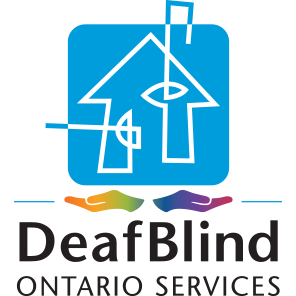Identifying the number of people with deafblindness and age-related dual sensory loss (DSL) is a vital step to promote awareness of how to support and empower people who are deafblind around the world and in Canada. It is equally as important to recognize individuals who are deafblind for their unique abilities, and provide professional services to integrate and fully include them as members of their local, national, and global communities.
According to the World Federation of the Deafblind’s At Risk of Exclusion from CRPD and SDG’s implementation: Inequality and Persons with Deafblindness publication in September 2018, between 0.2% and 2% of the world’s population is deafblind. While individuals who are deafblind represent a small segment of the global population, they are likely to face challenges finding and obtaining appropriate professional supports. As a result, they are often excluded from development and support programmes.
In Canada, the estimated (lowest) number of individuals with deafblindness in Canada is 368,412 (1% of total population) with Ontario having 40% of the total at 147,736 (1%); these figures, taken from a recent paper from DeafBlind Ontario Services, align with the average range of people who are deafblind across the world. Canadians who are deafblind also have inconsistent access to supports and services across the country. Each province or territory has a varying degree of funding available to provide unique and specialized services for persons who are deafblind.
The five subsections in this report will follow the WFDB report’s structure and goals. Each section will:
- Identify trends for individuals who are deafblind around the world and in Canada
- Focus on five specific areas of life (political participation, social engagement, life as a senior, economic requirements and overall health), globally and nationally
- Examine the global and national trends and identify challenges
- Present the WFDB’s global recommendations to improve the overall quality of life in each of these areas of life
While the recent progress and successes made on global and national fronts in political, social, senior, poverty, and overall health for individuals who are deafblind are worthy of commendation and acknowledgment, an important message is that individuals who are deafblind struggle to secure professional supports to fully engage in these areas of life.
In addition to the more specific recommendations related to political, social, older individuals (i.e. seniors), poverty, and health, the WFDB also provided the following pre-conditions for inclusion:
- Universal and national recognition of deafblindness as a distinct disability in law and practice
- Development, in consultation with persons with deafblindness and their organisations, of required support and deafblind interpretation services, in particular interpreter-guides, and adequate public funding to ensure support in education, work and community life
- Ensure that organisations for persons with deafblindness are considered as a distinct disability group and are included as such in all consultation with persons with disabilities
- Involve persons with deafblindness and their organisations in awareness raising and inclusion-related programmes, serving as role models, mentors and peer support
- Adopt, in consultation with persons with deafblindness and their organisations, a consistent definition and measurement of deafblindness, and collect, disaggregate and analyse data, to assess and monitor the situation of persons with deafblindness, including relevant analyses of national datasets using the Washington Group Short Set questions or other methods
- Conduct additional research on the issues facing persons with deafblindness, including health status and access to healthcare, social participation and wellbeing, quality of work and education, causes, and age of onset. Undertake impact evaluations of interventions designed to improve inclusion
Working to achieve these recommendations will enhance the quality of life for individuals who are deafblind around the world and across Canada.
To read the full report, click here.



Recent Comments